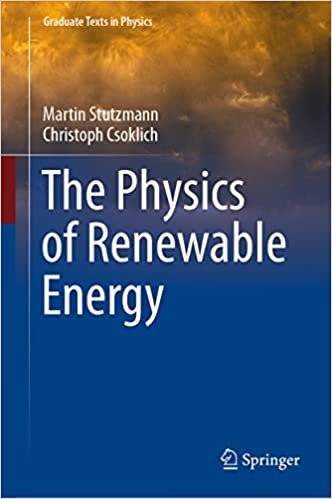Description
The Physics of Renewable Energy (Graduate Texts in Physics)
Embark on a profound exploration of the intricate relationship between physics and renewable energy in “The Physics of Renewable Energy.” Authored by distinguished experts in the field, this comprehensive book transcends conventional discussions, offering readers a deep dive into the fundamental principles that underpin renewable energy technologies. From the physics of solar cells and wind turbines to the intricacies of energy storage systems, this book serves as an indispensable guide for physicists, engineers, students, and anyone seeking a nuanced understanding of the physics driving the transition to sustainable energy.
The narrative unfolds with a meticulous examination of the physics behind key renewable energy sources. Readers are guided through the photovoltaic effect, uncovering the science that transforms sunlight into electricity in solar cells. The authors delve into the aerodynamics and fluid dynamics governing wind energy, shedding light on the principles that harness the kinetic energy of moving air. With clarity and precision, the book explores the conversion of thermal energy into electricity in concentrating solar power systems and the fundamental concepts behind geothermal and hydropower. The integration of mathematical rigor with accessible explanations ensures that readers, whether seasoned professionals or newcomers to the field, gain a comprehensive understanding of the physics shaping the renewable energy landscape.
As the journey progresses, “The Physics of Renewable Energy” seamlessly transitions into practical applications and cutting-edge advancements. Real-world case studies illustrate the physics behind successful renewable energy projects, from solar farms to wind power installations. The authors also explore the role of energy storage technologies, such as batteries and pumped hydro, in addressing the intermittent nature of renewable sources. The book doesn’t merely stop at explaining the physics; it provides a forward-looking perspective, discussing emerging technologies, innovations, and the evolving role of physics in shaping the future of renewable energy.
In a commitment to an enriched reading experience, the book is meticulously prepared with a color Matt finish, enhancing both the visual aesthetics and tactile engagement for readers. This deliberate choice not only elevates the beauty of visuals within the book but also reflects a conscious effort to provide a premium reading experience. Additionally, the inclusion of black and white materials ensures versatility, catering to a broad audience with varied preferences. This fusion of visual appeal with practicality mirrors the overarching themes of innovation and inclusivity within the realm of renewable energy physics, creating a book that is as aesthetically pleasing as it is informative.
In conclusion, “The Physics of Renewable Energy” stands as a seminal work that demystifies the physics behind sustainable energy sources. It not only informs readers about the fundamental principles but also inspires a thoughtful consideration of the physics driving the global shift towards renewable energy. The book beckons physicists, engineers, policymakers, and environmentally conscious individuals to engage with the complexities of renewable energy physics, fostering a collective vision for a sustainable and resilient energy future. Whether you are deeply immersed in the field or a curious learner eager to understand the science behind green technologies, this book promises a transformative journey into the physics that power our renewable energy revolution.








Reviews
There are no reviews yet.